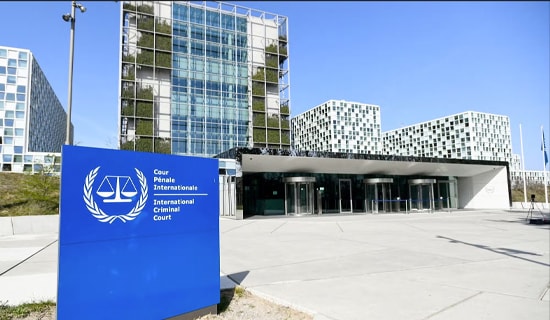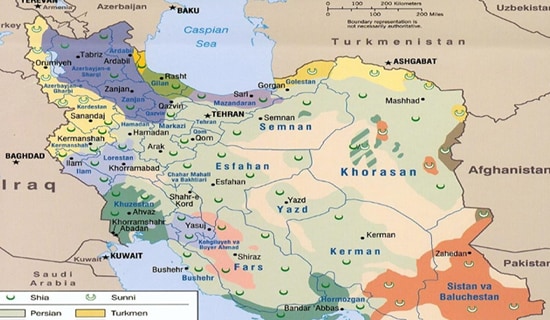As a young diplomat in the Middle East decades ago, I remember being told – I could see them too – of scores of young men in Arab regimes with nothing to do, unemployed, unmarried, unhappy. The fear was that this demographic reality was going to be trouble and some of them would indeed become foot soldiers of Al-Qaeda and ISIS or anti-regime demonstrators or petty criminals or desperate refugees fleeing to Europe.[1] The revolutionary impact of these dissatisfied masses with nothing to do would eventually be blunted by regimes brutally crushing the Arab Spring, a type of draconian bureaucratic solution to the problem of rudderless youth that seemed to work, at least for now.

What would happen if we were to see similar economic disruption in the West? Hard to imagine this in a United States which right now has a very low unemployment rate. Even European countries which tend to have higher youth unemployment rates, in places like Spain and Greece, have not seen the turmoil we have seen in the Middle East. And Western populations are considerably older than Middle East ones, more subdued, and with a much lower fertility rate.
But looming on the horizon in the West is not just another economic downturn or recession but something which has been described as unique or unprecedented. Venture capitalist and mathematician Eric Weinstein recently described it as "all hell is about to break loose."[2] AI tech executive Emad Mustaque spoke in similar apocalyptic if hopeful terms (both think the coming disruption is well worth it), that "the whole world will be disrupted."[3]
While both men have a penchant for self-promotion, the message they are delivering seems to be widely believed among their tech industry peers, that generative artificial intelligence will disrupt societies and economies on a massive scale leading to high and permanent unemployment as entire job sectors are wiped out and that this will happen within the next few years. At the very least, the capitalist economic model will be under tremendous stress. Governments are just beginning to scramble to catch up with this eventuality, at least when it comes to AI accountability issues related to "safety, security and trust."[4]
But beyond mere economics, an additional result of the coming disruption is said to be that the "purpose and dignity" of humans will be – at least initially – at a premium as of a result of AI-generated economic change. Some might note that the fight for both purpose and dignity is a constant and many people already struggle in achieving those goals.[5] Being permanently unemployed seems likely to make it worse.[6]
Some AI mavens believe that the purpose and dignity shortage will eventually resolve itself after the great disruption.[7] The challenge will be getting from now to then. This hopeful scenario is that governments will, after much initial pain, find ways to provide a universal basic income and social safety net. AI itself will likely help to mitigate the problems of loneliness and meaning. In this possible near future, AI caretakers or life partners will provide some sort of plausible simulacra to intangible things like intimacy, companionship, and imagination.
Likewise, AI then leads to startling breakthroughs in ways that greatly improve human flourishing, solving seemingly intractable problems, solving climate change, curing diseases, preventing death or prolonging life in ways undreamed of by past generations. In this utopia, humans also find satisfaction in adapting to working closely with AI in ways that mimic or substitute for whatever parts of economies and societies have been devastated.[8]
Others take a more dystopian view and see a "comfortably numb"[9] future where we will be terminally distracted and entertained, stupefied and sedated into irrelevance. This seems, in a way, a change only in degree to the current situation in modern Western society even before the mass adoption of AI in the workplace. We are already increasingly distracted and sedated.[10]
But while technological change will be global, the AI revolution also seems to be tailored to be specifically disruptive in the White-Collar West. The connected, digital world is more at risk than the analog world, indeed there are large swaths of the world where there are few or no human "knowledge workers" and patchy connectivity. The problems of meaning that so trouble the West will look quaint or odd to Darfuris or Venezuelans fleeing death squads.
The coming change could, ironically, devastate in the short term the "advanced" West while benefiting, in relative terms, the Global South, turning the world and the balance of power upside down. The questions of who will be "left behind," how many and where exactly and on what terms, have yet to be worked out in the public sphere. And how will new technologies developed by the skeptical mindset of Silicon Valley align with a world, outside of the west, with very different spiritual values?[11]
But not only will Western economies face unprecedented stress, so will Western democracies. What will the masses say at the ballot box about the possibility of being permanently out of work? And how will government bureaucracies respond to popular anger? Seeing how governments have responded to recent unrest in the United States (the 2020 George Floyd riots) or Canada (the 2022 Freedom Convoy strike) or France (the gilets jaunes protests or the 2023 riots) is hardly edifying. The temptation for even democratic governments to respond to unrest in authoritarian ways (or allowing criminality to run rampant) or to manipulate populations (and to do so assisted by AI) seems almost irresistible.
Many years ago, renowned psychiatrist Viktor Frankl wrote of the modern triad of aggression, addiction and depression and tied them to the struggle for meaning in contemporary life.[12] He saw these pathologies as, to some extent, connected to the vacuum people faced in their lives – lives that were actually far less distracted, automated and advanced than our own. States may, perhaps, be able to come up with plausible economic workarounds and political solutions. But that they can (or should) provide psychological ones seems far less likely.[13]
The fearful possibility of the coming AI revolution is not so much that machines will control us but rather that states will. Just as the Arab Spring caused Arab states to up and diversify their repression game, so will states – including Western ones – see themselves as having to exert more control over uneasy populations with too much time on their hands, for a supposed greater good. And they will have new tools to do so. Politics and dissent will be even more stage managed than they are already, revolution will be curated in the service of oligarchy.[14]
Many will initially find the new sheepdom to be a comfortable status. But others, perhaps only small, creative minorities, will look for something else. Some may prefer to find meaning in some traditional ways such a return to religious faith in an increasingly irreligious West. Some will look to hide in obscure corners of the globe to find their own ways. Others will look for excitement and meaning on the battlefield, to kill or be killed, as those young Europeans and Americans who went east to fight in the trenches of Ukraine or the desert of Syria.[15] To be an adventurer, an explorer, a gang member, a revolutionary, a prophet will be a kind of escape plan from an otherwise suffocating reality.
*Alberto M. Fernandez is Vice President of MEMRI.
[1] Usip.org/publications/2011/04/youth-and-arab-spring, April 28, 2011.
[2] Youtube.com/watch?v=DzHYIolSb3w&t=3010s, July 2023.
[3] Youtube.com/watch?v=Se91Pn3xxSs&t=8726s, July 19, 2023.
[4] Forbes.com/sites/washingtonbytes/2023/07/23/making-sense-of-tech-companies-ai-commitments-to-the-white-house/?sh=770afc0a73b3, July 23, 2023.
[5] Psychologytoday.com/us/blog/finding-meaning-in-imperfect-world/202006/how-common-is-the-belief-life-is-meaningless, June 16, 2020.
[6] Bbc.com/worklife/article/20210409-why-we-define-ourselves-by-our-jobs, April 13, 2021.
[7] Wired.com/story/artificial-intelligence-marc-andreessen-labor-politics, June 8, 2023.
[8] Technologyreview.com/2022/06/24/1054817/yann-lecun-bold-new-vision-future-ai-deep-learning-meta, June 24, 2022.
[9] Americansongwriter.com/meaning-of-pink-floyds-comfortably-numb-song-lyrics, 2022.
[10] Hbr.org/2020/05/are-you-stuck-in-the-anxiety-distraction-feedback-loop, May 19, 2020.
[11] Pewresearch.org/global/2020/07/20/the-global-god-divide, July 20, 2020.
[12] Positivepsychology.com/viktor-frankl-logotherapy, July 28, 2020.
[13] MEMRI Daily Brief No. 448, Empty Vessels Looking To Belong, January 12, 2023.
[14] Seekingthehiddenthing.com/p/teeny-bopper-revolutionaries-part-e9e#details, July 23, 2023.
[15] Militantwire.com/p/history-and-weapons-analysis-polish, July 18, 2023.








